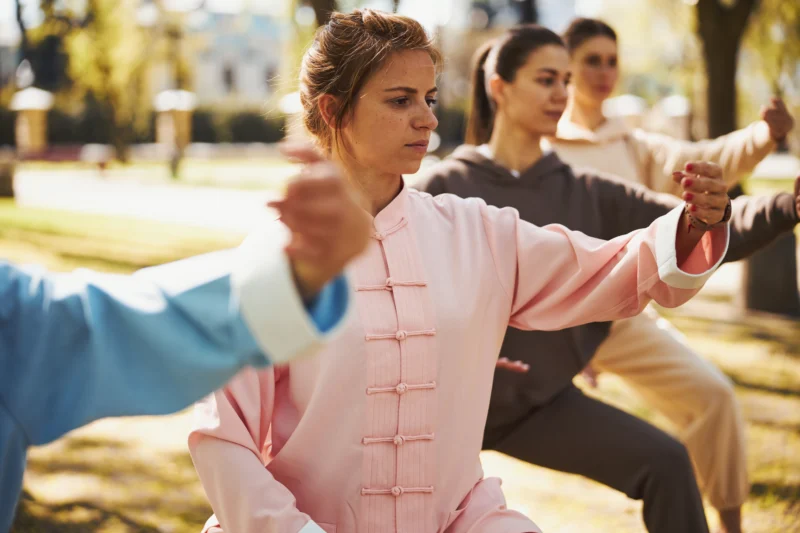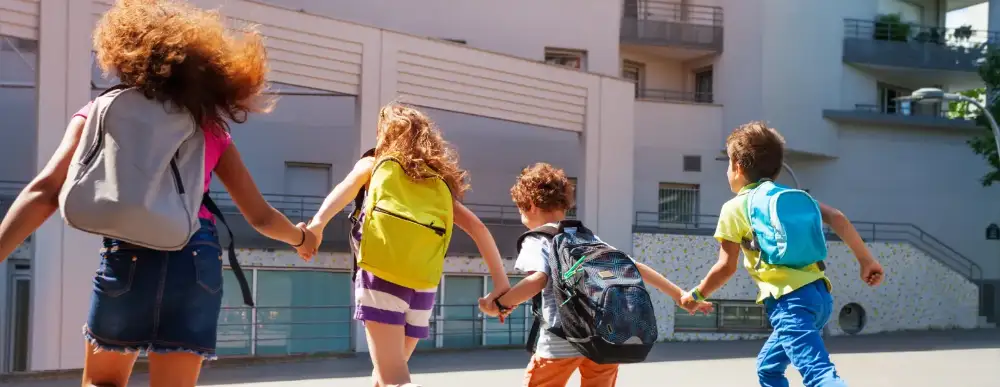Over seventy-nine million kids in the United States wear backpacks to school; but did you know that an estimated fifty-five percent of them are carrying a backpack that is too heavy. A child’s backpack should weigh no more than ten to fifteen percent of their body weight. A backpack that is to heavy or worn incorrectly can contribute to health problems including back pain, neck pain, shoulder pain, or development of poor posture. Muscle strain is the most common injury associated with backpacks. We need to make sure our kids are wearing their backpacks properly and that they don’t weigh too much.
There are things we can do to help our kids wear their backpacks safely. The first thing is to start with a lightweight backpack that is made with durable material. The second thing is to make sure the shoulder straps are wide and padded. This will provide support and prevent the straps from becoming too tight. The straps should be snug but not to tight to cause discomfort. The third thing is to make sure the back is padded to provide additional support and prevent discomfort. The fourth thing is to look for a backpack with a waist strap. This holds the contents closer to the child’s back which can help maintain balance. The fifth thing is to find a backpack with multiple compartments which helps to evenly distribute the weight of the items inside the backpack. The heaviest items should be packed low and toward the center of the bag. The sixth thing to do is to make sure that both shoulder straps are always worn. This can also help distribute the weight more easily and prevent the child from leaning to one side. It also it harder for the child to lose their balance. The seventh and last thing is to make sure the child’s backpack is not overloaded. Anything more than the fifteen percent recommended can force the child to slouch or hunch to compensate for the extra weight.
When buying a backpack make sure it’s the right size for your child. A good backpack should not be wider that your child’s torso or hang more than four inches below the waist. Backpacks are better than shoulder bags, messenger bags, or purses because strong muscles- the back and abdominal muscles support the weight of the packs. When a heavy backpack is worn incorrectly on the shoulder, its force can pull a child backward. The child might bend forward at the hips or arch the back to compensate. This can make the spine compress unnaturally, leading to should, neck, and back pain. When kids wear backpacks on one shoulder, they may start to lean to one side to compensate for the extra weight of a backpack that is overloaded. This can cause lower and upper back pain and strain the shoulder and neck. Backpacks with tight, narrow straps can dig into the shoulders and interfere with circulation and nerves which can lead to tingling, numbness, and weakness in the arms and hands.
Besides back, neck, and shoulder pain; there are other safety issues to consider if kids wear backpacks that are to heavy. Kids aren’t often aware of how much space a big backpack takes up and can hit other kids with their backpacks when turning around or walking in tight hallways. Overloaded backpacks can also be a tripping hazard or can fall off a desk and hurt a kid. Backpacks that are to heavy can also put kids at risk for falling, especially on stairs or other places where a backpack puts a student off balance. If your child complains of back, shoulder, or neck pain or numbness or weakness in the arms and legs, talk to their doctor or a physical therapist
Candice Hutchins is an RN at the Health West Pediatrics clinic. She has been a nurse for seventeen years with most of her experience in Postpartum and well-baby nursery.

Movement is key to health







